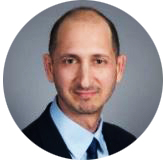Genetic Alleles Affect Response to Prasugrel in ACS Patients
Two genetic polymorphisms affect response to the antiplatelet agent prasugrel in patients with acute coronary syndromes (ACS) receiving percutaneous coronary intervention (PCI). According to the study, appearing in the December 2012 issue of JACC: Cardiovascular Interventions, one of the variant alleles worsens platelet inhibition while the other improves platelet suppression but at the expense of increased bleeding.
Researchers led by Thomas Cuisset, MD, PhD, of Aix-Marseille Université (Marseille, France) looked at the effect of the CYP2C19*2 and CYP2C19*17 alleles in 213 ACS patients who received prasugrel 10 mg per day after successful PCI.
The overall rate of high platelet reactivity, defined as platelet reactivity index (PRI) on vasodilator stimulated phosphoprotein (VASP) analysis (Platelet VASP, Diagnostica Stago/Biocytex, Asnières, France) greater than 50%, was 7% at 1 month. Carriers of the loss of function *2 allele had worse platelet inhibition (PRI VASP and high platelet reactivity) than noncarriers, while carriers of the *17 gain-of-function allele had improved platelet inhibition compared with noncarriers (tables 1 and 2).
Table 1. Platelet Response at 1 Month to Prasugrel by CYP2C19*2 Status
|
Carrier |
Noncarrier |
P Value |
PRI VASP |
33% |
27% |
0.03 |
High Platelet Reactivity |
16% |
4% |
0.01 |
Table 2. Platelet Response at 1 Month to Prasugrel by CYP2C19*17 Status
|
Carrier |
Noncarrier |
P Value |
PRI VASP |
25% |
31% |
0.03 |
High Platelet Reactivity |
1% |
10% |
0.02 |
The overall incidence of bleeding complications at 1 month was 15% using Bleeding Academic Resource Consortium (BARC) definitions. Patients who were carriers of the *17 variant allele had a higher rate of BARC bleeding complications than noncarriers (23% vs. 11%; OR 2.5; 95% CI 1.2-5.4; P = 0.02).
Overall, patients with bleeding complications had lower PRI VASP values than patients without bleeding (24% vs. 30.1%; P = 0.03), and patients with “hyper response” or PRI VASP less than 17%, had a higher rate of bleeding compared with non-hyper responders (24% vs. 12%; OR 2.2; 95% CI 1-5; P = 0.04).
Only 2 ischemic events—1 definite and 1 probable stent thrombosis—occurred during 1-month follow-up, and genetic/platelet parameters showed no association among patients with or without ischemic events.
No influence of genotype was observed on platelet reactivity assessed by ADP-induced platelet aggregation.
A First for Prasugrel
Dr. Cuisset and colleagues note that like clopidogrel, prasugrel is a prodrug that irreversibly blocks the P2Y12 platelet receptor after hepatic transformation and thus could be affected by CYP450 variants in the same manner as the older antiplatelet.
“This study provides for the first time, to the best of our knowledge, data about CYP2C19 genetic polymorphisms’ modulation of platelet response and bleeding risk in prasugrel-treated patients after ACS,” they write. They add that the definitions of high platelet reactivity and hyper-response suggest an optimal therapeutic window (17% to 50%) for patients treated with P2Y12 inhibitors.
While the current results require further trials to determine their clinical applicability, the authors note that CYP2C19*17’s potential effect on bleeding risk “could be of great clinical interest, aiming to provide genetic-based individualized therapy,” in prasugrel-treated patients.
In particular, the current study shows the importance of genetics in thienopyridine use—either clopidogrel or prasugrel—and “that risk scoring with genetic information might be useful also for bleeding risk,” they add.
Source:
Cuisset T, Loosveld M, Morange PE, et al. CYP2C19*2 and *17 alleles have a significant impact on platelet response and bleeding risk in patients treated with prasugrel after acute coronary syndrome. J Am Coll Cardiol Intv. 2012;5:1280-1287.
Related Stories:
Jason R. Kahn, the former News Editor of TCTMD, worked at CRF for 11 years until his death in 2014…
Read Full BioDisclosures
- Dr. Cuisset reports receiving consultant fees from Daiichi-Sankyo and Eli Lilly, and lecture fees from AstraZeneca, Abbott Vascular, Biotronik, Boston Scientific, Cordis, Daiichi-Sankyo, Edwards LifeSciences, Eli Lilly, Sanofi-Aventis, and Servier.


Comments